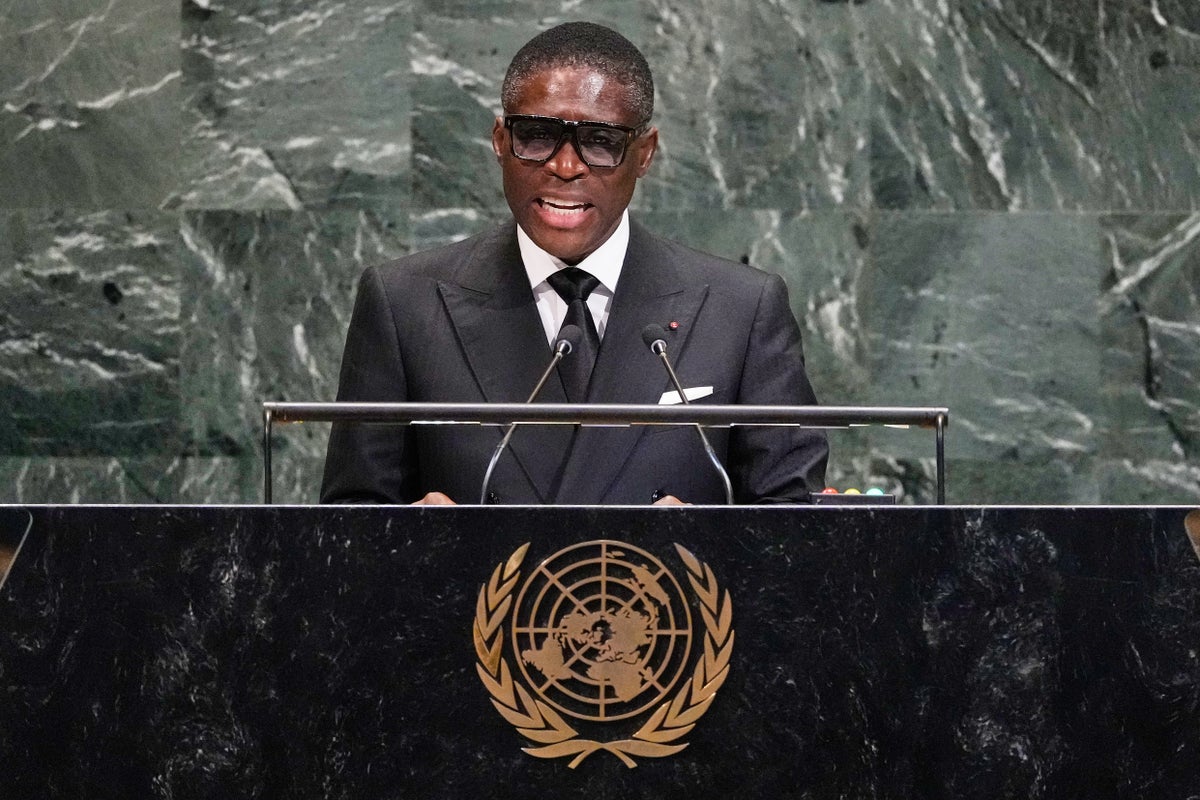Top Stories
U.S. Diplomat Meets Equatorial Guinea’s Leader After Sanctions Eased

U.S. Deputy Secretary of State Christopher Landau met with Equatorial Guinea’s Vice President Teodoro “Teddy” Nguema Obiang in Washington on September 25, 2023. This meeting followed the recent approval of a waiver by the Trump administration, which eased corruption sanctions that had previously restricted Obiang’s travel to the United States. The waiver enabled him to attend a high-level United Nations meeting in New York and visit other U.S. cities, marking a significant shift in diplomatic relations.
The U.S. State Department announced the meeting on September 26, stating that Landau and Obiang reaffirmed their commitment to strengthen commercial and economic ties, combat illegal immigration, and enhance security cooperation. The statement highlighted their agreement to take concrete steps to expand the bilateral relationship.
Obiang, who faces numerous accusations of exploiting his nation’s resources for personal gain, had been unable to travel to the U.S. due to the sanctions imposed against him. These sanctions were initially aimed at curbing his notorious lifestyle, characterized by luxury cars, mansions, and superyachts. The recent waiver, first reported by The Associated Press, was justified by administration officials as a means to counter growing Chinese influence in Equatorial Guinea and to promote American interests in the oil and gas sectors.
The easing of restrictions for Obiang contrasts sharply with the Trump administration’s broader approach to immigration and visa policies, which have become increasingly stringent. While facilitating travel for a leader under heavy scrutiny, the administration has denied or revoked visas for many foreign officials deemed undesirable.
For instance, Palestinian Authority leaders were denied entry to the U.N. General Assembly, and similar restrictions were placed on delegations from Iran, Brazil, Sudan, Nicaragua, and Venezuela. Iranian diplomats faced specific limitations, including a ban on purchasing luxury goods without prior approval from the State Department.
Adding to the complexity, Brazilian Health Minister Alexandre Padilha and his family were restricted to a five-block radius of their accommodations in New York, U.N. headquarters, and the Brazilian mission. This restriction came amidst ongoing tensions between President Donald Trump and Brazilian President Luiz Inácio Lula da Silva, particularly concerning the prosecution of Lula’s predecessor, Jair Bolsonaro.
Similar travel limitations were imposed on Venezuelan Cabinet Minister Magaly Gutierrez Vina, requiring her to obtain permission for any travel beyond a one-mile radius of her lodging. Nicaraguan Foreign Minister Valdrack Whitaker also faced travel restrictions during the General Assembly, needing approval for travel beyond a 25-mile radius of Columbus Circle.
These developments reflect a complex interplay of U.S. foreign policy, where easing sanctions for one leader runs parallel to stringent visa regulations for others. As the U.S. navigates its relationships with various nations, the implications of these actions will likely resonate beyond immediate diplomatic circles.
-

 Entertainment3 months ago
Entertainment3 months agoAnn Ming Reflects on ITV’s ‘I Fought the Law’ Drama
-

 Entertainment4 months ago
Entertainment4 months agoKate Garraway Sells £2 Million Home Amid Financial Struggles
-

 Health3 months ago
Health3 months agoKatie Price Faces New Health Concerns After Cancer Symptoms Resurface
-

 Entertainment3 months ago
Entertainment3 months agoCoronation Street’s Carl Webster Faces Trouble with New Affairs
-

 Entertainment3 months ago
Entertainment3 months agoWhere is Tinder Swindler Simon Leviev? Latest Updates Revealed
-

 World2 weeks ago
World2 weeks agoBailey Announces Heartbreaking Split from Rebecca After Reunion
-

 Entertainment2 weeks ago
Entertainment2 weeks agoCoronation Street Fans React as Todd Faces Heartbreaking Choice
-

 Entertainment4 months ago
Entertainment4 months agoMarkiplier Addresses AI Controversy During Livestream Response
-

 Science1 month ago
Science1 month agoBrian Cox Addresses Claims of Alien Probe in 3I/ATLAS Discovery
-

 Health4 months ago
Health4 months agoCarol Vorderman Reflects on Health Scare and Family Support
-

 Entertainment4 months ago
Entertainment4 months agoKim Cattrall Posts Cryptic Message After HBO’s Sequel Cancellation
-

 Entertainment3 months ago
Entertainment3 months agoOlivia Attwood Opens Up About Fallout with Former Best Friend





















